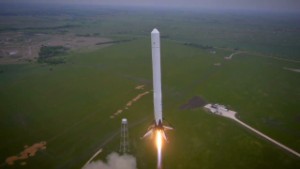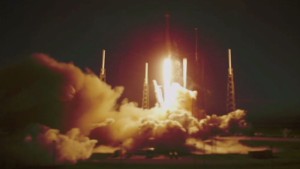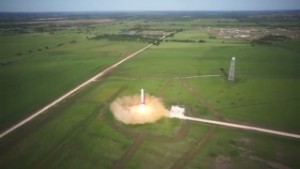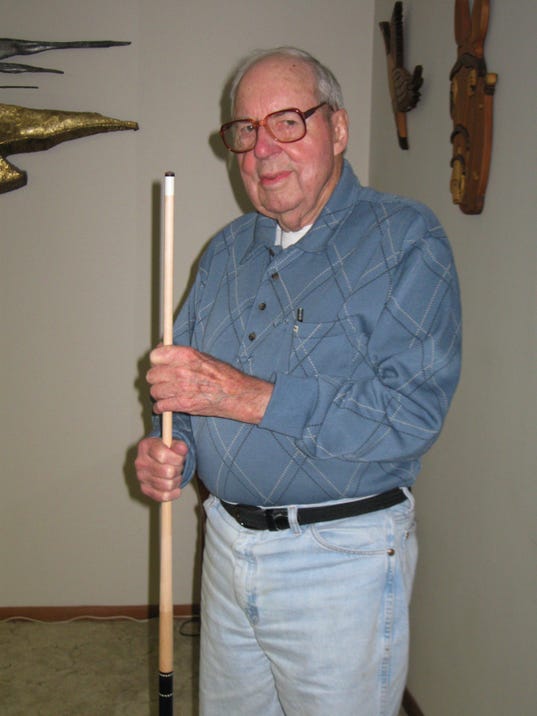Interview from Folsom Prison shortly after his return to the United States
His Last Interview
David: What have you gained from your illness, and how has the dying process affected you?
Timothy: When I discovered that I was terminally ill I was thrilled, because I thought, "Now the real game of life begins. Oh boy! It's the Super Bowl!" I entered into the real challenge of how to live an empowered life, a life of dignity. How you die is the most important thing you ever do. It's the exit, the final scene of the glorious epic of your life. Death is loaded with paradox and taboo, so it's hard for me to be thinking this through, even though I'm involved in the process of dying full-time. Do you follow my confusion? I can not exaggerate the power of this taboo about dying. It's spooky, it's something we're supposed to be frightened of. Death is something symbolized by Hiroshima and Nagasaki.
David: Have you learned anything in particular from this illness?
Timothy: You don't learn, you re-discover. We're all going to die. I'm seventy-five years old, but you're dying too. It's just a matter of scheduling. Of course it's all paradoxical. I think that you shouldn't be a victim, but you have to be one now and then. Maybe once an hour you can complain, and be a victim all you want, but for no more than five minutes! (Laughter) So then once you have that attitude, and you set the domino chips going, then it becomes a force. Death should be good, but it's like setting off a domino tree-- all your prejudices, and all your fears and taboos come up.
David: When you first heard that you had cancer, did you accept that you were going to die, or did you say I'm going to fight this?
Timothy: One thing that we're so fanatic about is this metaphor of fighting. It's unbelievable how in this society we stress fighting and combating a disease. We're fighting everything! The presidential candidates are supposedly trying to figure out what's good for America, but all they do is lie and fight, fight, fight! It's an amazing way to select a president, isn't it?
David: So you think using that metaphor in a medical sense is dangerous?
Timothy: It's even worse. It's so inbred into us, implanted during our childhood.
David: Cryonic suspension aside, what do you personally think happens to consciousness after the death of the body?
Timothy: Well, this is the most important question, right?
David: It's the greatest mystery of all time.
Timothy: What do you think?
David: I have several dozen competing theories and ideas that I entertain regularly. Maybe death, like life, is influenced by what we believe it to be. Maybe only some of us continue, and others don't. Maybe at death one splits apart into many beings, or maybe we unify into some kind of greater Self. Maybe you just transcend this world completely, and journey to another unimaginable level. Maybe you cease to exist altogether. C'mon Timothy, you must have given it some thought. What do you think happens when you die?
Timothy: Well, I always try to be scientific.
David: It's pretty difficult to be scientific about something that's pure mystery, that we can't even measure yet.
Timothy: Why? That's what science is all about. Science deals with the mystery. Science loves being proved wrong. We know that when the heart stops-- flatline-- the brain continues to go on...
David: For another fifteen minutes or so.
Timothy: Yeah, which makes this a very interesting and fascinating notion, doesn't it? Particularly when most of the Eastern religions have stressed something very different from that, right?
David: The Eastern religions-- like Buddhism or Hinduism-- stress a continuity of self, that every self is eternal, and connected to a larger Self. It's pretty difficult being really scientific about what happens to consciousness after death.
Timothy: How dare you? Throw out all of science... because of what?
David: I'm not throwing out science, it's just that there's presently no way to measure consciousness. There's no evidence to go on.
Timothy: Of course there's evidence. I'm going to have my dying room set up weeks, months in advance, so that there will be at least twenty or thirty ways that I'm going to be communicating. Even in the worst case where I can't speak, or make use of any motor ability, there will be some way I can communicate my experience.
David: That's for while you're dying, not after you're dead. After that we'll have to have a seance in order to talk to you. Don't you have some kind of theory, some kind of intuition or idea that you play with about what happens to consciousness after you cross over the threshold?
Timothy: Theory and intuition-- is that the same thing?
David: No, but intuitions can help us to form theories.
Timothy: Based on intuitions. Is intuition like a scale or a truck?
David: It's more elusive, it's a hunch or a feeling.
Timothy: Feeling inside you of what?
David: That something is right, or wrong, or that a pattern will continue a certain way, and it's not based upon just a logical analysis of the situation, but upon an emotional response that's difficult to articulate.
Timothy: But then where did it come from? It must be based on something.
David: I don't know where intuitions come from. But I really want to know what you think happens after you die? (laughter)
Timothy: Well, I'm a very special case. The average person doesn't spend a lot of time...
David: ...preparing...
Timothy: ...all of these years in arranging for their death. By hitting, dialing, arranging for injections, changing the screen, and through all these other options I'll be able to communicate in a language which we're making up for the experience. And see there again, it points out the need for practice and for rehearsal.
David: Kind of like the "metaphase typewriter" that you designed in the sixties, to encode a large amount of meaning into simple commands during a psychedelic experience?
Timothy: Yeah.
David: Do you see the psychedelic experience as being preparation for dying?
Timothy: Well, obviously, that's the oldest metaphor.
Rebecca: I was going to ask what would you like your funeral to be like?
Timothy: Well, you're assuming there's going to be a funeral. Yeah, you're talking about the ceremonies or the activities.
Rebecca: Yeah, what would you like that to be like after you die?
Timothy: Well, just what we're doing right now. Everything that I do, everything that goes on in this house is centrally connected with our work, our philosophy, our religion. It's all woven together.
David: You used the word religion.
Timothy: I consider that to be one of the most dangerous words in the English language-- Croatians, Catholics, Moslems...
David: What did you mean by it then when you said it?
Timothy: Well, I didn't say it, I repeated it.
David: Where do you think that you go after you die Timothy?
Timothy: Well, obviously your body is going to go where you instruct people to bring it. It can be cremation, it can be worms...
David: Timothy, do you think that your consciousness can exist independently of your body?
Timothy: Sure. Oh absolutely. Of course.
David: Oh you do?! You've had experiences of being out of your body?
Timothy: Well, I've taken a lot of LSD.
David: Well, so have I, but I'm not sure that I've had any out-of-body experiences on LSD though. But you have?
Timothy: Oh yeah. Many times I'd feel my leather hands (laughter), and there's no warm blood inside them. Flesh has become simulated skin. Yeah, I've been there.
David: Have you ever had feelings like you've lived before? When you're tripping you must have had that?
Timothy: Oh absolutely, yes. Jesus, yeah. In that state the reality scenarios are amazing.
David: Looking back over your life, what would you say were the most important things that you learned?
Timothy: Over and over again, you say "learned", as though this were some kind of manual we were doing.
David: You say re-discover?
Timothy: Oh, it depends upon the context.
David: What are the most important things that you've re-discovered or learned throughout your life?
Timothy: One of the most important things that I've learned is that when you meet an irresistible force, move on! Keep moving. Don't hang around Bosnia or wherever. Can you believe they're killing each other over there over a tiny piece of land? Always put yourself in the best place you can, the best place to be. The selection of your location-shot-- where you make this movie of your life-- is tremendously important. Go to a place where the people share your interests, your aspirations, and your optimistic point of view. A place, of course, that is secure and safe. You don't want to go into the middle of Bosnia or someplace like that. You have a lot to do with the selection of the place you live, your own goals, and the uniform you wear.
David: Do you have any regrets, or would you change anything in your life?
Timothy: Boy, I have tremendous regrets of letting people down, mainly friends and relatives. It's interesting though, that the things that I regret not doing, I had already begun doing more than full-time, like seeing more of my grandchildren. I just regret that I couldn't do more. It's the same helplessness of any friend or parent when you see someone who you love that you can't help.
David: You wish that you could have done more, or that you could have been more there for them?
Timothy: I'm just sad about it. You're trying to rationalize it. I just fucking feel sad. I don't have to have a reason. (laughter) Right? Funny isn't it.
David: What kind of world do you envision when you're re-animated from cryonic suspension?
Timothy: Why throw that in? Why not just say, what do you think will happen in the future? It might be a place with a bunch of middle-class white men standing around with clipboards. (laughter) If that's the case, then send me back. (laughter)
David: So do you have a particular fantasy?
Timothy: You know, I don't. I'm so involved in living all this. Does that make any sense?
David: Yeah, you're very much in the moment.
Timothy: No, I'm doing it. What does that mean-- I'm doing it? I'm planning it, and trying things out. All this is a rehearsal. I'm rehearsing.
David: For?
Timothy: My death. You know how when people get married they have a wedding rehearsal, with bridesmaids and all that? This is similar. There's going to be a big party.
(To Rebecca) Thank you for your radiance and warmth. I think you like me.
Rebecca: I do like you very much. You've had a very big influence on my life.
David: Yeah, you've had a really big influence on my life too. One of the things I really wanted to do was to thank you for coming to this planet and doing what you've done. You've been an amazing inspiration-- for me, and for a lot of people.
Timothy: Not that I'm making a big victim-problem out of it, but it's possible that I've influenced an enormous number of people. It's possible that I'm one of the most important people of the Twentieth Century. Not that I am, but that this wave going on which I've been a part of is. It was happening and I was there. I saw it happening, and I predicted it, but I didn't cause it.
David: Well, you did more than simply predict it, you surfed it. Your courage and vision inspired a lot of people. You helped to create a lot of what went on.
Timothy: The metaphors, the rituals, the style, and the attitude. There is a definite attitude-- the way I see life-- that I think got incorporated into the culture. It is a very thrilling and wonderful opportunity that we are now lucky enough to be in this position in America. It's staggering how lucky we are. You could be in prison or stuck in Bosnia-- Wow!
David: How are you feeling Timothy?
Timothy: I am absolutely in heaven. This is the best I've felt in many many days. I must tell you I feel emotionally just very very happy, blissed out as a matter of fact, and I'm having a lot of fun. The pain can be terrible, but if I don't move, God, I just feel great. And, also you see, the longer we keep talking, the longer I can get her (Robin-- our friend, the massage therapist) to hang around. (laughter)
When she (Robin) starts getting up under the knees, it's almost like a genital thrill-- ooohhh woooww! (Laughter) Once she gets over the kneecap... oh boy! Just that little squeeze there... I'm having a good time. I hope I'm not playing around too much. I'm feeling mellow, and I'm enjoying it, and I like you guys. So I'm just babbling away here. (To David) You have a very healing face. You radiate a kind of quiet joy. It's amazing. It's very nice. I like you. (To Robin and Rebecca) He's a very nice guy isn't he? Friendly, sincere, good teeth too, boy.
Rebecca: What is important to you right now?
Timothy: Well, right now, this massage. (laughter) Anytime you're being massaged, it's a wonderful world.
David: Is there anything that you haven't done, that you'd still like to do?
Timothy: Well, that's something I've thought about, and the answer is basically, no. I have no desire to expand into adventures or quaint explorations. When you're younger you want to see Athens and the Vatican, to travel around the world. That just doesn't attract me at this stage.
David: How would you like to be remembered?
Timothy: Everybody gets the Timothy Leary that they deserve.
David: What has been the secret, all these years, to your undying sense of courage and optimism?
Timothy: It's common sense. It's all common sense and fair play. See, because fair play is common sense. It's a very obvious approach to life.
My Blog : Interesting video on Millennials
-
My Blog : Interesting video on Millennials: From Youtube
8 years ago






